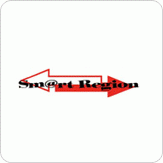

Project title: Sm@rt Region
Project type: international
Project Status: Completed
Project duration: 1 October 2006 - 31 March 2008
Financing: The project is partly financed by the EU - Interreg III B Cadses
Partners:
- SRC Bistra Ptuj (Slovenia) - Leading partner,
- GEA College (Slovenia),
- Mind Consult & Research Ltd (Austria),
- Government of Styria (Austria),
- Department for Economics and Labor (Austria),
- ReFIT r.s. (Germany),
- irtschaftsverband Gera - Ronneburg 2007 e.V. (Germany),
- Regional Advisory and Information Center Presov (Slovakia),
- Regional State Department and Presov (Slovakia),
- Local Enterprise Agency of Somogy County (Hungary),
- Enterprise Development Foundation of Tolna County (Hungary),
- Euro Info Center IT 378 Veneto (Italy),
- Municipality of Osijek (Croatia),
- HGK-County Chamber of Varaždin (Croatian Chamber of Economy - County Chamber of Varaždin),
- Center for Strategic Economic Studies Vojvodina-CESS (Serbia, Montenegro).
Project goals:
- Overcome the regional imbalance in the CADSES area (Central, Adriatic, Danubian and Southeastern Europe) and the EU.
- To overcome the imbalance in the development of urban and rural environments within the region by systematizing the promotion of the potentials of the economy's participation with regional development actors.
- Supporting regional economies through the systematisation of interregional and cross-sectoral cooperation activities; promotion of innovation in the field of education, training, education, research and development.
- Establishment of a standardized tool for the promotion of transnational cross-sectoral cooperation at the regional level.
Meaning for the local environment:
Results of the project
- A review of the status of the thematic regional networking and a prepared set of potential interregional cooperation for the needs of identifying operators with knowledge and information according to the principle of standardization.
- Pilot application of a communication and information manager model in four European regions for standardizing the concept and establishing a model in the region, including training and issuing a manual.
- Increased level of cooperation between the regions in the project and an increased level of cooperation between small and medium-sized enterprises in the field of services.
- Develop models of cooperation in various fields, such as cross-border cultural cooperation, planning interregional projects, innovation processes in regional development.


